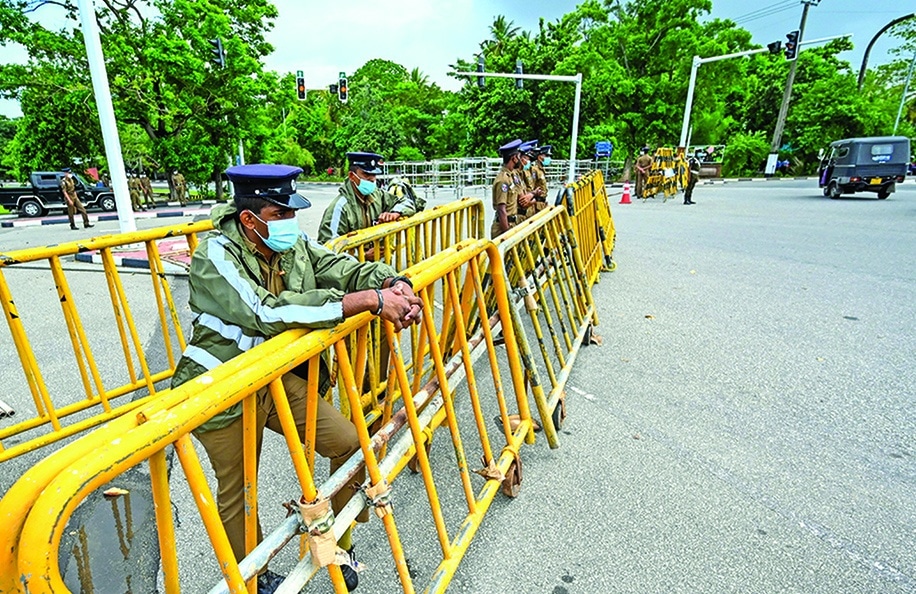COLOMBO: Sri Lanka's beleaguered president side-stepped a censure motion on Tuesday after his fractured coalition rallied to delay a resolution blaming him for the country's worst economic crisis. Gotabaya Rajapaksa's shaky coalition voted against taking up the unprecedented "displeasure of parliament" motion.
The non-binding motion was proposed by the main opposition Tamil party, the Tamil National Alliance, saying it echoed the demands of thousands of anti-government demonstrators who have for weeks been seeking Rajapaksa's resignation. Shortages of food, fuel and medicines, along with record inflation and lengthy blackouts, have brought severe hardships to Sri Lankans, in the worst financial crisis since independence from Britain in 1948.
The president's elder brother Mahinda stepped down as prime minister last week and in a bid to defuse mounting public anger, Gotabaya appointed opposition politician Ranil Wickremesinghe to replace him. Wickremesinghe has won crucial support from the two main opposition parties to form a "unity government" to pull the country out of the dire economic crisis, but had yet to form a full cabinet on Monday afternoon.
He was expected to name a new cabinet later, but political sources said negotiations were still underway on sharing portfolios. In an address to the nation Monday, Wickremesinghe said the country had run out of petrol and that the "next couple of months will be the most difficult ones of our lives".
Most petrol stations in the capital were closed on Tuesday with long queues outside the few that were still open. Sri Lanka is in the throes of its worst-ever economic crisis with its 22 million people enduring severe hardships to secure food, fuel and medicines while facing record inflation and lengthy power blackouts.
Wickremesinghe assumed office Thursday after his predecessor Mahinda Rajapaksa was forced out after weeks of protests over the government's handling of the economic crisis turned deadly. "The next couple of months will be the most difficult ones of our lives," Wickremesinghe said. "I have no desire to hide the truth and to lie to the public."
However, he urged people to "patiently bear the next couple of months" and vowed he could overcome the crisis. He said the government had also run out of cash to pay the 1.4 million civil servants their salaries in May, and he will turn to money printing as a last resort.
"Against my own wishes, I am compelled to permit printing money in order to pay state-sector employees and to pay for essential goods and services," he said. He also warned that fuel and electricity tariffs will be raised substantially and his government will also sell off its loss-making national carrier to reduce losses. Sri Lanka has sought an IMF bailout and one of the key demands of the international lender is for Colombo to divest loss-making state enterprises, including Sri Lankan Airlines whose carried-forward losses exceed a billion dollars.
Sri Lanka had run out of dollars to finance essential imports, Wickremesinghe said, and three oil tankers were waiting off Colombo to be paid before they would unload. The country was also out of 14 essential drugs including anti-rabies vaccines, the premier said, adding suppliers of medicines had not been paid for about four months. - AFP











